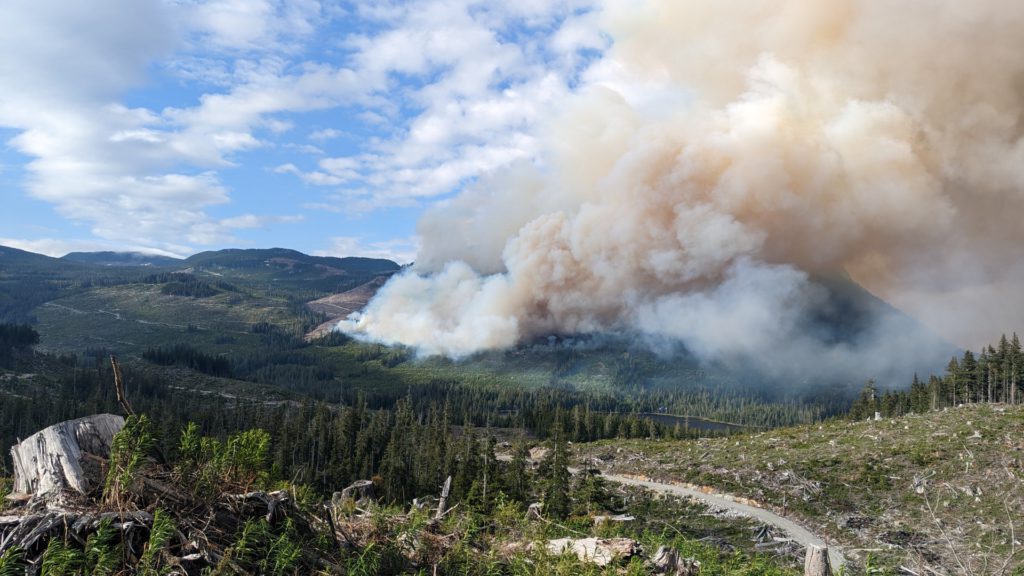
A wildfire outside of Sayward grew to 90 hectares overnight and remains out of control, according to the BC Wildfire Service.
The fire, named the Newcastle Creek Fire, is suspected to have been caused by a human.
At 5:25 p.m. Monday evening, BC Wildfire Service said no critical infrastructure or homes are at risk, but the fire is visible from Sayward.
There are 55 firefighters, three helicopters, and water tenders working on the fire Tuesday.
An Initial Attack crew initially responded to the fire, and a 20 person unit crew is enroute as well. At this time, no critical infrastructure or homes are at risk, but the fire is visible from the community of #Sayward. This fire is suspected to be human-caused.
— BC Wildfire Service (@BCGovFireInfo) May 30, 2023
Julia Caranci, fire information officer with Coastal Fire Centre says the fire is moving parallel to the village and is not moving closer to it. She says firefighting efforts will focus on ensuring it does not get closer to Sayward.
She says there has not been significant rainfall on Vancouver Island for quite some time, so the conditions remain dry and fire risk is elevated.
“Until we have some form of significant rainfall, we are going to continue to see that fire danger rating increase on Vancouver Island and other parts of the Coastal Fire Center,” Caranci said.
“So the message we want to get out right now, while we have not prohibited campfires at this time in the Coastal Fire Centers jurisdiction, we are cautioning residents to use extreme caution and be very responsible if they are intending to have a campfire at this time.”
Environment Canada has issued air quality advisories for East Vancouver Island from Courtenay to Campbell River, Duncan to Nanaimo, and Nanoose Bay to Fanny Bay.
The weather agency warns that the area is expected to be impacted by smoke for the next 24-48 hours.
“Wildfire smoke is a natural part of our environment but it is important to be mindful that exposure to smoke may affect your health,” the air quality advisory says.
“Wildfire smoke can be harmful to everyone’s health even at low concentrations. Everyone can take action to reduce their exposure to wildfire smoke.”
Environment Canada says the following people are at higher risk of negative impacts from wildfire smoke:
- People with lung or heart disease
- Older adults
- Children
- Pregnant people
- People who work outdoors
Forest fire smoke is so thick in Nanaimo this morning, that the Coast Mountains are no longer visible. @CHEK_News #wildfires pic.twitter.com/Bxb6iGy6Xz
— Skye Ryan (@SkyeRyanCHEK) May 30, 2023
RELATED: Early snowmelt in Western mountains means drier summers, more wildfire risk: study
Elsewhere on the Island, the fire near Port McNeill remains under control, while the fire near Port Alberni has been declared out.
This is the #bcwildfire burning near #Sayward tonight. 90ha and out of control. Roughly 5km west of the Village. Human-caused, it began in a cutblock and noticed at 1:34 pm today. No evacuation orders/alerts. Smoke/ash now well to the south. @CHEK_News Credit: Megan Mathiason pic.twitter.com/4ICRncvDIN
— Dean Stoltz (@deanstoltzchek) May 30, 2023




